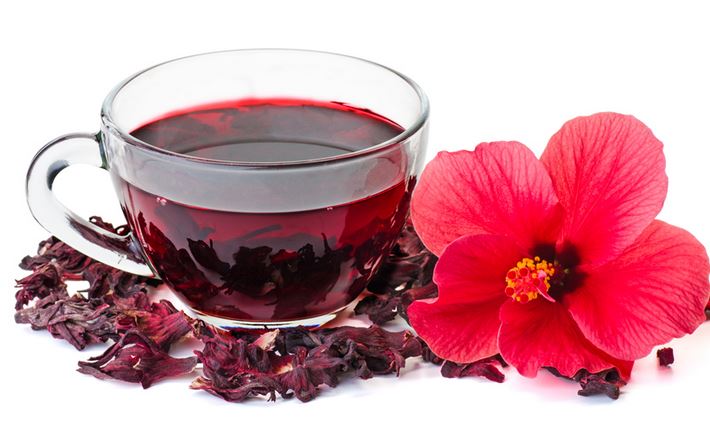Benefits of hibiscus tea | |

| |
Hibiscus tea, derived from the vibrant and enchanting hibiscus flowers, is not only a visually appealing beverage but also a treasure trove of health benefits. With its tart and refreshing flavor, hibiscus tea has gained popularity worldwide as a natural remedy and a delightful addition to tea enthusiasts' collections. In this article, we explore the numerous benefits of hibiscus tea, ranging from cardiovascular support to immune system boost, uncovering the wonders of this captivating herbal infusion. The Power of Hibiscus Tea: A Closer Look at Its Health BenefitsHibiscus tea is packed with a rich array of beneficial compounds that contribute to its therapeutic properties. Let's delve into the remarkable benefits that make hibiscus tea a true gift from nature: 1. Cardiovascular Support: Nurturing a Healthy HeartOne of the standout benefits of hibiscus tea is its potential to support cardiovascular health. Studies suggest that regular consumption of hibiscus tea may help lower blood pressure levels, reduce bad cholesterol (LDL), and promote good cholesterol (HDL). The natural antioxidants found in hibiscus tea, such as flavonoids and anthocyanins, contribute to its heart-protective effects, maintaining the overall health of the cardiovascular system. 2. Immune System Boost: Strengthening Your Body's DefensesHibiscus tea is a rich source of vitamin C, a vital nutrient known for its immune-boosting properties. Vitamin C helps stimulate the production of white blood cells, which are crucial for defending the body against infections and diseases. Regular intake of hibiscus tea can contribute to a stronger immune system, helping you stay healthy and ward off common illnesses. 3. Digestive Wellness: Supporting a Healthy GutFor those seeking digestive support, hibiscus tea can offer a natural solution. This herbal infusion possesses mild diuretic properties and can aid in maintaining regular bowel movements. It may also provide relief from occasional digestive discomfort. The gentle nature of hibiscus tea makes it an excellent choice for promoting digestive wellness. 4. Antioxidant Powerhouse: Combating Free RadicalsHibiscus tea is teeming with antioxidants that help combat the damaging effects of free radicals in the body. These antioxidants neutralize harmful molecules, reducing oxidative stress and inflammation. Regular consumption of hibiscus tea may contribute to healthier aging, cellular protection, and overall well-being. 5. Weight Management: Aiding in Healthy Lifestyle GoalsIncorporating hibiscus tea into a balanced diet and active lifestyle may support weight management efforts. Hibiscus tea is known for its potential to inhibit the production of amylase, an enzyme that breaks down carbohydrates. By moderating amylase activity, hibiscus tea may help control blood sugar levels and promote healthy weight management. Frequently Asked Questions (FAQs)FAQ 1: How should I prepare hibiscus tea?To prepare hibiscus tea, follow these simple steps:
FAQ 2: Are there any potential side effects of hibiscus tea?While hibiscus tea is generally safe for consumption, it's essential to exercise moderation. Some individuals may experience mild effects, such as stomach discomfort or an increase in urination, due to its diuretic properties. Additionally, hibiscus tea may interact with certain medications, so it's advisable to consult with a healthcare professional if you have any concerns or underlying medical conditions. FAQ 3: Can hibiscus tea be consumed during pregnancy or breastfeeding?Pregnant or breastfeeding women should exercise caution when consuming hibiscus tea. It is recommended to consult with a healthcare professional to determine the suitability and appropriate consumption guidelines, as excessive amounts of hibiscus tea may have certain effects on hormone levels. FAQ 4: Can hibiscus tea be enjoyed by children?While hibiscus tea is generally considered safe for children in moderate amounts, it's advisable to consult with a pediatrician before introducing it into their diet. As with any herbal infusion, it's important to ensure the safety and suitability for their age and overall health. FAQ 5: Can hibiscus tea be consumed hot or cold?Hibiscus tea can be enjoyed both hot and cold, depending on personal preference and the weather. It is often consumed as a refreshing iced tea during hot summer months or as a comforting hot beverage during colder seasons. Experiment with different temperatures and find your preferred way to savor the delightful flavors of hibiscus tea. ConclusionHibiscus tea, with its vibrant color, tangy taste, and remarkable health benefits, stands as a testament to nature's healing power. From promoting cardiovascular health to bolstering the immune system and supporting digestive wellness, hibiscus tea offers a host of advantages that can enhance your overall well-being. So, brew a cup of hibiscus tea, sip its goodness, and revel in the beauty of this exquisite herbal infusion that brings joy and nourishment to your body and soul. | |
| Views: 184 | | |
| Total comments: 0 | |